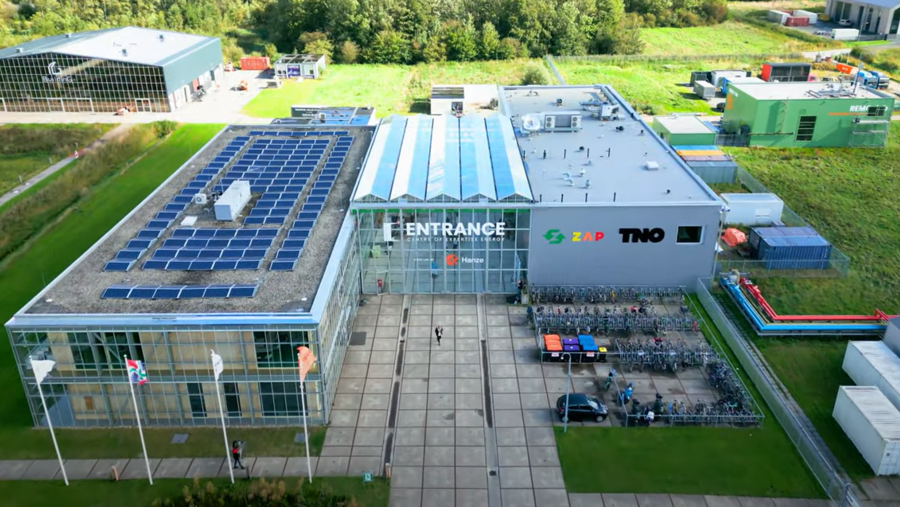Energy Governance
- Minor
Energy Governance

Curious about where our future energy will come from? How will energy markets change? How will this impact households and businesses? In line with international climate and energy goals, energy markets will undergo substantial changes until mid-century. Most energy will be supplied with renewable energy sources such as wind and solar energy, replacing fossil fuels. What does it mean for energy markets to be more dependent on the weather for energy supply? What can be done to keep energy supply stable and how to organize that? In other words, what energy governance do we need?
This minor is for students with a passion for the environment and a keen interest in the future of our energy supply. The minor enables collaboration among students with different backgrounds as the energy transition requires solutions from multiple disciplines, such as engineering, economics, law, communication and behaviour. With that, students will rethink energy market structures, the rules of the game and responsibilities, and thus be able to contribute to new insights on energy governance.
Energy Governance will familiarize you with energy governance aspects. Governance is the process of making and enforcing decisions within an organization or society. In the energy market, these ‘rules of the game’ have been built around fossil fuel-based energy production and consumption. With an increasing share of renewable energy, with their different characteristics, these rules will change. Old energy markets have been largely separated: electricity, heat and transportation. New energy markets are more integrated with electricity also being used for heating and riding vehicles. This will change the shape of energy markets, with consumers also becoming energy producers, electric vehicles becoming virtual power plants and businesses being paid for not using energy.
You will be introduced into all these developments and challenged to rethink what this means for the ‘rules of the game’, the governance. You will be encouraged to take different ‘roles’ in the energy market and think about at actions to be taken by governments and private businesses while coping with market changes.
The programme will consist of four main courses during two periods:
Within these blocks you will be able to build a solid knowledge base, as well as apply this knowledge to concrete project assignments from Hanze’s research community. You will be able to make a difference!
In the second period you will work at ENTRANCE - Centre of Expertise Energy, where multidisciplinary research takes places on the latest energy solutions. It’s a lively hotspot for meeting innovative companies, system operators, municipalities, researchers, and professors. They will involve you in their questions and projects tapping into your gained insights on energy governance.
Examples of projects for you to work on are:
In the video below, Professor Wytze van der Gaast tells more about the minor:

After completing this programme you will have gained insight into the public and private decision making processes related to the energy transition. The programme will provide you with the knowledge and skills for developing solutions for energy transition related issues.
With the minor you are qualified to work as an advisor to the public or private sector, be it energy companies, industrial plants, consumer organisations or local governments. Or you become an innovator working on energy-related projects and startups. Closer to home you could help initiatives in your local community.

This video, created by ExxonMobil gives you a general idea of the challenges and opportunities in today's energy markets. Are you fascinated? If so, this pogramme is perfect for you!
| This minor is a 30-credit programme. | ||
| Courses | ECTS Credits | Course code |
| Introduction to energy governance | 5 | SIRE24ITE |
| Market Organization | 5 | SIREB24MO |
| Energy Strategies | 5 | SIREB24ES |
| Project Assignment | 15 | SIREB24PA |
| All these courses are spread across the two blocks | ||
Are you a student at Hanze University of Applied Sciences and would you like to enroll for this minor? It can be done via Osiris. A place in this minor is awarded based on a draw. For more information go to Mijnhanze.nl under 'Knowledge base - student' ('Weten & Regelen').
Are you studying at another university in The Netherlands and would you like to enroll for this minor? Then visit the website Kies Op Maat (KOM).
Students from our partner institutions abroad can apply for this programme as an Exchange Programme. For more information about the steps for our exchange application process click here.
No background in the area of law, economics and technical studies is required. The lectures are set up in an interdisciplinary manner and background reading is provided so that all can participate in this course.


Minor coördinator